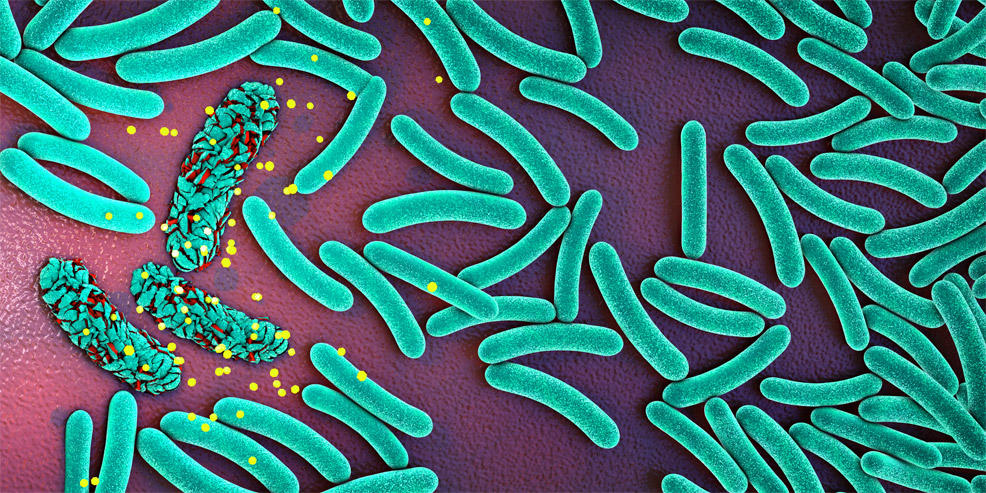
9th April 2024 New class of antibiotics discovered An entirely new class of antibiotics with potent activity against multi-drug resistant bacteria has been discovered by a team from Sweden.
Antibiotics are the foundation of modern medicine. Over the last century, they have transformed the lives of people around the world. Nowadays, we tend to take antibiotics for granted and they are routinely used to treat or prevent bacterial infections – including, for example, during cancer therapy, invasive surgery and organ transplants, and in mothers and preterm babies. Increasingly though, the rise of antibiotic resistance is threatening their effectiveness. Studies have predicted that deaths from antimicrobial resistance could exceed those from cancer by 2050. The development of novel therapeutics to which there is no existing resistance is therefore essential. This month, researchers at Uppsala University in Sweden have published research in Proceedings of the National Academy of Sciences, describing a new class of antibiotics developed as a part of an international collaboration. The class of compounds they describe target a protein, LpxH, which is used in a pathway by Gram‑negative bacteria to synthesise their outermost layer of protection from the environment, known as lipopolysaccharide. Not all bacteria produce this layer, but those that do include organisms identified by the World Health Organization as being the most critical to develop novel treatments for, including the likes of Escherichia coli (E. coli) and Klebsiella pneumoniae, which have already developed resistance to current antibiotics.
No pre‑existing resistance
The team at Uppsala showed that this new antibiotic class is highly active against multidrug-resistant bacteria and was able to treat bloodstream infections in a mouse model, demonstrating its potential. Importantly, since this compound class is completely new and the protein LpxH has not yet been exploited as a target for antibiotics, there is no pre-existing resistance to this class of compounds. This is in contrast to the many "me‑too" antibiotics of existing classes currently in clinical development. While these results are very promising, the scientists emphasise that their research is at an early phase. Considerable additional work will be required before compounds of this class will be ready for clinical trials in humans. This initial stage formed part of an EU project known as ENABLE, supported by pharmaceutical company GlaxoSmithKline, and brought together stakeholders from across Europe representing academia as well as commercial interests, to pool resources and expertise. This antibiotic class now continues to be developed in a follow‑on project called ENABLE‑2, funded by agencies including the Swedish Research Council.
Comments »
If you enjoyed this article, please consider sharing it:
|
||||||







